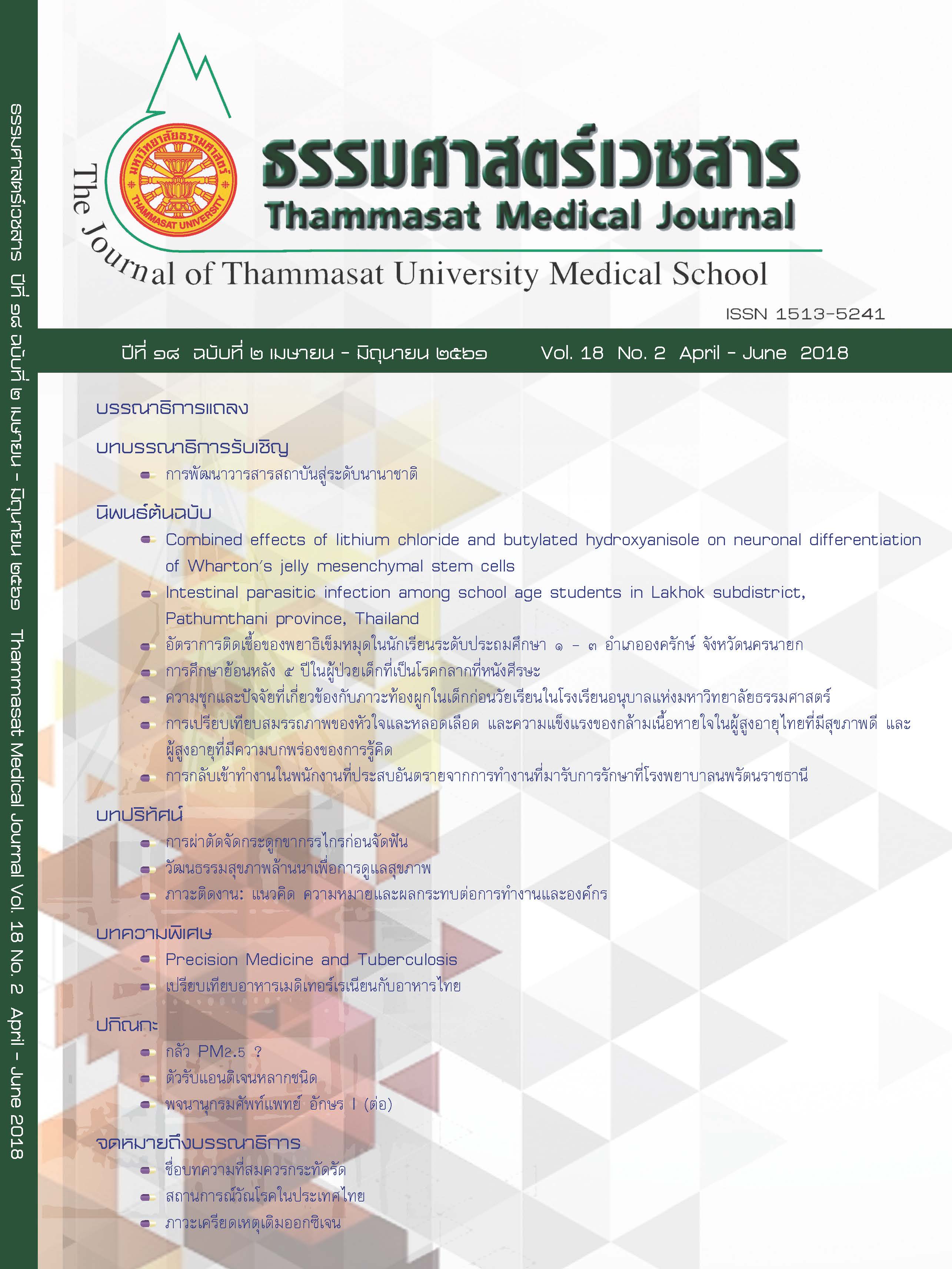Return to work in employees with occupational injuries at Nopparat Rajathani hospital
Keywords:
Return to work, Occupational injuryAbstract
Introduction: Although return to work issue plays an important role in injured employees, there are limited data on return to work after occupational injury
Method: This cross-sectional descriptive study included 971 occupational injured employees with workmen’s compensation claims who attended Nopparat Rajathani hospital between January 2014 and December 2015. Data were analyzed using percentage, mean, standard deviation, chi-square test and Fisher exact test.
Result: Return to work rates at 3, 7 and 30 day post-injury were 57.1 65.3 and 82 respectively. RTW rates were significantly higher in younger employees and low-income employees. However, there were significantly lower RTW rates in injured employees attending the department of orthopaedic surgery. In addition, employees with hand and leg injuries had a significantly lower RTW rate compared with others.
Discussion and conclusion: Lower return to work rates among employees were associated with falling from height, vehicle accident, admitting to the department of orthopaedic surgery, multiple injuries and loss of an organ. Therefore, we should pay attention and place this group under surveillance to promote return to work rates.



